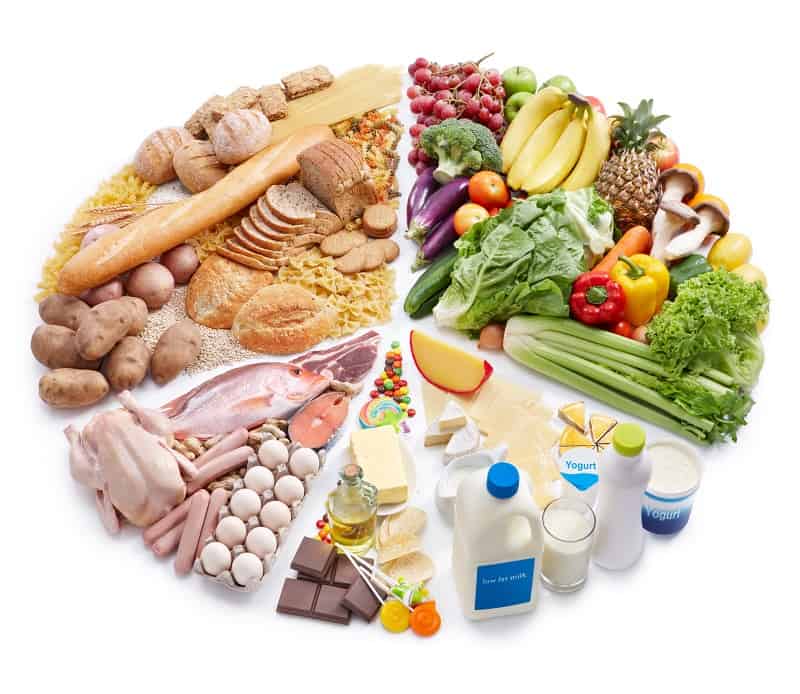Muscles are made up of tens of thousands of small fibers that group together to form an elastic tissue. The elasticity of the muscle allows it to grow or shrink, and the number of fibers present in the tissue are indicative of the muscle’s strength.
A dietary supplement can make up for shortcomings in your diet, however they are not necessary to build muscle. In order for your body to break down muscle fibers and repair them, you need adequate nutrition and a healthy diet. The body requires nutrients from food to metabolize and create adenosine triphosphate (ATP). Muscles then turn the ATP into energy in order to function properly.
Muscle growth can be achieved with proper diet, exercise, and adequate rest. However, there are supplements available that claim to build muscle and speed up this process.
A certified sports dietician at UC San Diego Health, Suzanne Smith, claims that there is scientific evidence that supplements can promote muscle growth. While a study by Rohde et al., 1998; Nieman and Pedersen, 1999, found it had little or no effect.
How Do Muscles Grow
Muscle growth occurs as a result of external stressors like having to deal with high levels of resistance or weight.
The muscles then sustain damage and are repaired by the body by fusing the damaged fibers together, thus increasing their mass and size. The entire process is called muscle hypertrophy.
Building muscle requires a combination of exercise, proper diet, and rest. The muscles are damaged after resistance training and weight lifting, so while the body is at rest it releases hormones to help repair the damage with the nutrients present in the body.
Hormones and nutrients play an important role in the muscle hypertrophy process. Hormones use the nutrients found in the body to improve muscle growth.
For example, hormones break down protein (nutrient) and improve how the body processes it.
Micronutrients vs Macronutrients

As the food we consume plays a huge role in contributing to the muscle building process, it’s essential we learn to balance our diet.
Expert dietitians will recommend counting both macronutrients and micronutrients depending on the goal. There is no exact measurement from person to person as it all depends what each person needs.
For example, bodybuilders who want to increase muscle mass must consume higher amounts of protein. Those looking to lose weight might want to cut back on unhealthy carbs. It’s a case by case basis.
To break down both macronutrients and micronutrients, start by looking at the beginning of each word.
“Macro” is derived from the Greek word makros, which means large.
Macronutrients are nutrients the body needs larger amounts of. These are often measured in grams, such as grams of protein or fat. Macro-based diets are categorized in three ways:
- Carbohydrates – This is the body’s main source of energy, it can be found in food such as bread, pasta, rice, and fruits.
Carbohydrates are split into healthy carbs, found in food like vegetables, and unhealthy carbs, found in food like cake or other sweets. The trick to a healthy diet is to lessen the intake of unhealthy carbs and increase the consumption of healthy carbs instead.
- Fats – Split into three main groups, saturated, unsaturated, and trans fatty acids, fats are often given a bad reputation. However, it’s only the saturated fats and trans fatty acids that the body doesn’t necessarily need.
Unsaturated fats have a positive effect on your body, as they regulate the body’s metabolism, maintain the elasticity of cell membranes, improve blood flow, and promote cell growth and regeneration.
Food such as oils, nuts, and meats contain fats.
- Protein – This nutrient plays a bigger role in the muscle building process as all body tissue is made up of protein. It aids in repairing muscle tissue, skin, hair, and muscle fibres. It is found in eggs, tofu, fish, and meat.
“Micro” is derived from the Greek word mikros, which translates as small.
Micronutrients are nutrients the body needs in smaller amounts. Micronutrients are measured in terms of milligrams or micrograms. It is also broken down into two categories:
- Vitamins – Vitamins help protein to repair muscle tissue by helping the cells multiply. This nutrient also aids in producing collagen to heal wounds, promote healthy bones and teeth, and protect the body against diseases.
- Minerals – In order to maintain and correct the balance of water in the body, an adequate amount of minerals needs to be consumed. These also help protein by stabilizing protein structures that make up the hair, nails, and skin. Minerals will also help in getting the oxygen moving all over your body.
Most micronutrients can be found in food such as fruits and vegetables. The vitamins and minerals found in such food can assist functions all throughout the body. Some examples of micronutrients are:
- Calcium
- Vitamin C
- Vitamin B-6
- Vitamin B-12
- Vitamin E
- Iron
- Zinc
What Nutrients Support Muscle Growth
The body needs the right nutrients in order to promote proper muscle growth. Each nutrient has its role in the muscle hypertrophy process.
Magnesium – Magnesium aids in the rest portion of muscle hypertrophy. It improves sleep quality and the repairing of muscle damage. It’s found in nuts, whole grains, and leafy vegetables.
Protein – Protein plays a crucial role in building muscles. Proteins are made up of different amino acids that help build and repair muscle mass. Food such as lean meat, fish, and dairy are a good source of protein.
Glutamine – Another amino acid, glutamine is like protein. It also helps in repairing muscle tissue. Food such as chicken and beef, fish, eggs, dairy, and some greens are rich in glutamine.
What are Supplements

Dietary supplements are used to quite literally supplement your diet.
A supplement makes up for shortcomings and can be used to supplement vitamin and mineral deficiencies. They will contain one or more dietary Ingredients like amino acids, vitamins, metabolites, extracts, and herbs or botanicals.
Supplements are ingested orally and are available in pill, capsule, powder, tablet, or liquid form.
Common Supplements Used to Promote Muscle Growth
1. Protein
Proteins are a large group of molecules that everyone needs in order to function, athletes and sedentary individuals alike.
These groups of molecules are essential for muscle growth as they help build and repair tissues.
In order to promote muscle growth, there should be an increase in protein intake. You can increase protein intake by eating more protein-rich food like meat, dairy, and beans.
If changing diets is not possible, protein supplements can be taken.
An analysis done in 2018 by the British Journal of Sports Medicine found strong evidence that those who took a protein supplement had a significant increase in muscle strength and size.
Although protein supplements do help in building muscle, they are not a necessity.
2. Creatine
Creatine is a compound stored inside muscles. It is produced by the kidneys, liver, and pancreas for better physical performance that in-turn leads to muscle growth.
Like protein, an increase in creatine intake is also needed for better physical performance for muscle growth.
Eating more food with creatine, such as meat and fish, is enough to increase creatine production in the body.
Studies have shown that taking creatine supplements can help improve exercise performance over time, and increase the amount of weight a person could lift.
Taking creatine supplements can indeed lead to a significant increase in muscle mass, however eating more creatine-rich food can also suffice.
3. Caffeine
Caffeine is a natural stimulant that promotes mental alertness and improves exercise performance.
Caffeine, like creatine, is an ergogenic supplement. Ergogenic supplements have performance-enhancing qualities. Better performance while training and exercising can lead to muscle growth.
There are only a few studies that cite evidence of caffeine supplementation helping in improving overall performance.
A review in 2010 claimed that caffeine supplementation aided in resistance training. Another study in 2012 claimed that caffeine supplementation can increase squat and bench press performance.
4. Branched-Chain Amino Acids (BCAA)
BCAAs help in minimizing protein degradation during intense training. This leads to an increase in fat-free muscle mass.
BCAA activates a pathway in the body that stimulates the synthesis of protein in the body.
One study notes that people who consumed BCAAs after resistance training had a greater increase in protein synthesis, thus building more muscle.
On the contrary, another study shows that there is little evidence to suggest that BCAA supplements promote muscle gain.
Aside from supplements, BCAAs intake can be increased by incorporating more lean meat and poultry in your diet.
5. Beta-Alanine
Beta-alanine is another amino acid produced by the body to lessen fatigue and improve exercise performance.
A study showed that increasing beta-alanine intake through supplementation can increase lean body mass.
An increase in Beta-alanine intake can also be achieved through eating more fish, chicken, and lean meat.
